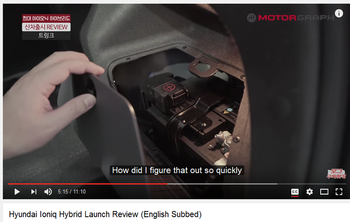user 10599
Well-known member
- Joined
- Aug 11, 2013
- Messages
- 774
Or a lifetime battery warranty would work to deal with anxiety over degradation. So it looks like they are listening to what it will take to get mass market adoption.
Styling is more like what has proven successful with the mass market. The article wrongly says this is a risk. Early adopters like the science project looks as they are wanting to make a statement and get asked about it and be part of educating people. However, the styling that sells well with the mass market is what EVs need to move to if they are going to truly go mass market.
Styling is more like what has proven successful with the mass market. The article wrongly says this is a risk. Early adopters like the science project looks as they are wanting to make a statement and get asked about it and be part of educating people. However, the styling that sells well with the mass market is what EVs need to move to if they are going to truly go mass market.


